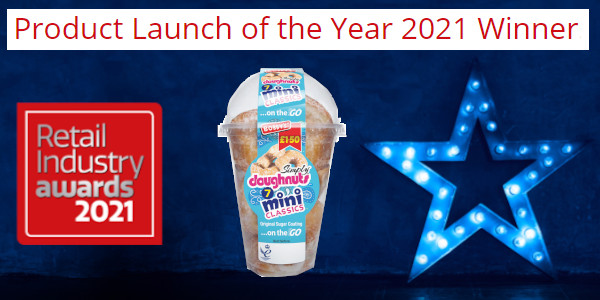British retailers and distributors are facing significant commercial pressures this autumn. For one thing, there’s a marked shortage of HGV drivers that is hampering logistical operations and forcing up the associated labour costs. For another, the cost of fuel for road vehicles is rising sharply, adding further to businesses’ expenses.
In conjunction with this, energy prices are also skyrocketing. That’s affecting the cost of gas and space-heating, but it’s also driving up the cost of electricity. That means that every process that requires power is costing companies more.
However, clients who shift their purchasing towards longer-life products can help to offset both problems.
Long-Life Products and Transport Costs
Products with longer shelf lives typically require fewer (but often larger) deliveries. For example, a doughnut that lasts 30 days clearly doesn’t need to be re-supplied so often as a more conventional product that may last only two days before it grows stale. The long-life product can be supplied in larger batches, with longer gaps between deliveries.
Fewer deliveries means fewer road miles, lower fuel costs and fewer demands on HGV drivers, whose time can then be used more productively, making other essential rounds. Importantly, it also means fewer associated carbon emissions.
It can of course be argued that short-life products can be frozen. That’s true, but that brings its own challenges. First, it requires the use of more expensive (and scarcer) refrigerated vehicles. At a time like this, that in itself can give rise to bottlenecks in distribution and to gaps on retailers’ shelves.
Second, those refrigerated vehicles are considerably heavier and more energy-hungry. That means higher fuel costs and a more significant carbon footprint – both of which retailers are generally anxious to avoid.
Long-Life Products and Energy Costs
The impact of rising energy costs isn’t just felt on the roads, of course. Once delivered, frozen products must be kept frozen until they are required for sale. That puts additional demands on industrial freezers, in terms of both storage space and electrical power.
By contrast, products that can be kept and displayed at ambient temperatures make no such demands and incur no such additional costs.
The Waste-Minimisation Trend
Products with longer shelf lives unquestionably help to reduce waste but, given the current economic climate, customers aren’t just looking at the problems of waste product and waste packaging. Energy, fuel and labour resources are all important considerations and their costs are rising steadily, so waste minimisation is essential here, too.
Longer-life products offer distinct advantages in this regard and clients are increasingly recognising their advantages. And these advantages aren’t only limited to road miles and refrigeration. Obviating the need for freezing also obviates the need for the labour-intensive process of removal, thawing and preparing for display. Similarly, longer-life products require less frequent inspections and stock-rotation on the shelves.
In short, there is a clear commercial benefit in moving towards products with longer shelf lives, and rising costs are making the case even stronger.











